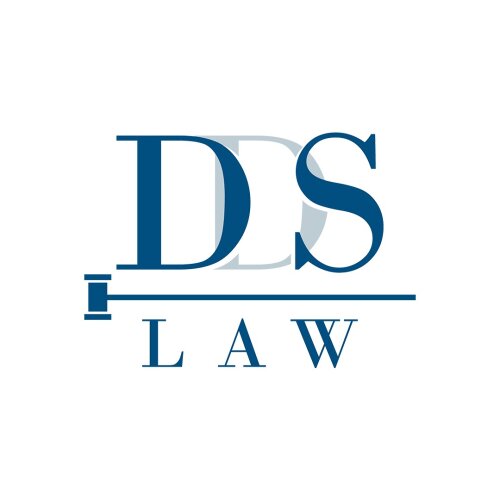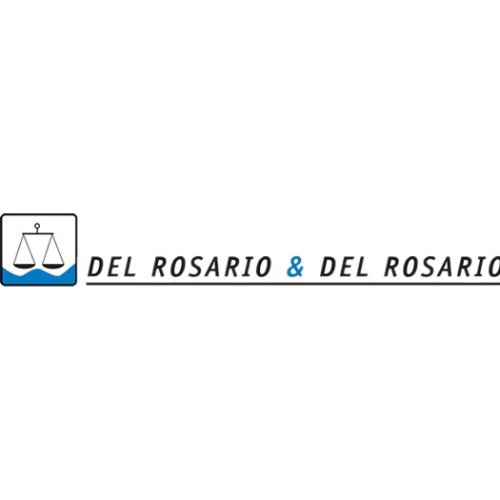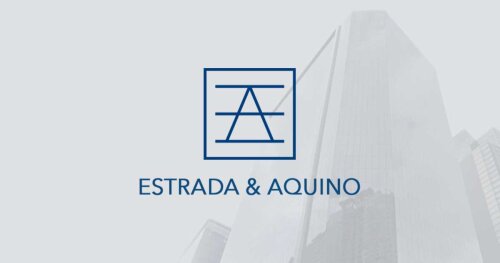Best Banking & Finance Lawyers in Taguig
Share your needs with us, get contacted by law firms.
Free. Takes 2 min.
List of the best lawyers in Taguig, Philippines
Philippines Banking & Finance Legal Questions answered by Lawyers
Browse our 2 legal questions about Banking & Finance in Philippines and read the lawyer answers, or ask your own questions for free.
- Is an OFW /expatriate in UAE with an existing bank loan can have a travel ban order in our country?
- I was an OFW in UAE and was included in a company mass termination. I haven't finished my bank loan and my computed gratuity was not enough to settle my loan so upon getting the email I exited UAE to another country & after a year went back to Phil.... Read more →
-
Lawyer answer by Islaw - Expert Lawyers
Hi, there may be a helpful answer of your querry. Unpaid personal loans or credit card debt (even if it's from a UAE bank) are considered civil cases, not criminal offenses under international law. Interpol is usually involved only for...
Read full answer - Is it really possible to collect a debt thru filing a case?
- I am planning a case against a friend who has multiple swipes on my credit card but failed to pay me. Initially, she was a good payer but something happened and she stopped paying me. The total number of swipes was a huge amount. I also have an investment in... Read more →
-
Lawyer answer by Starlion Legal
What country are you in? Yes, you can make a claim in court for this in a small claims court.
Read full answer
About Banking & Finance Law in Taguig, Philippines
Banking & Finance Law in Taguig, Philippines governs the legal aspects of financial institutions, transactions, and regulations within the city. It covers various areas such as banking operations, lending and borrowing, securities, investment, and other financial transactions. Understanding the legal framework is crucial for individuals and businesses involved in banking and finance activities in Taguig.
Why You May Need a Lawyer
There are several situations where seeking legal advice from a lawyer specializing in Banking & Finance Law in Taguig, Philippines can be beneficial. Some common scenarios include:
- Starting a new financial institution or business related to banking and finance
- Negotiating loan agreements, mortgages, or financial contracts
- Resolving disputes with banks, financial institutions, or regulatory authorities
- Dealing with bankruptcy or insolvency issues
- Complying with banking regulations and government requirements
Local Laws Overview
Taguig follows the laws of the Philippines, including those specific to Banking & Finance. Some key aspects of local laws relevant to Banking & Finance in Taguig, Philippines are:
- The General Banking Law of 2000 governs the establishment and regulation of banks and financial institutions.
- The Securities Regulation Code oversees securities offerings, trading, and disclosures.
- The Anti-Money Laundering Act of 2001 aims to prevent money laundering and terrorism financing.
- The Philippine Deposit Insurance Corporation (PDIC) Act of 2009 provides deposit insurance coverage for bank deposits.
Frequently Asked Questions
Q: What licenses are required to operate a bank in Taguig?
A: To operate a bank in Taguig, you need to obtain a license from the Bangko Sentral ng Pilipinas (BSP), the central monetary authority of the Philippines.
Q: How can I file a complaint against a bank or financial institution in Taguig?
A: You can file a complaint with the BSP through their Consumer Assistance Management System (CAMS) for grievances related to banks and other supervised financial institutions.
Q: What are the key obligations of banks towards their customers in Taguig?
A: Banks in Taguig have an obligation to maintain the confidentiality of customer information, provide fair and transparent terms for financial transactions, and promptly address customer concerns and complaints.
Q: How does the Anti-Money Laundering Act affect banking transactions in Taguig?
A: The Anti-Money Laundering Act imposes strict reporting and record-keeping requirements on banks to prevent illicit money laundering activities. It may result in additional scrutiny and verification procedures for certain transactions.
Q: What recourse do I have if a bank unlawfully denies my loan application in Taguig?
A: If you believe a bank unlawfully denied your loan application, you can seek legal advice to explore options such as filing a complaint with the BSP or pursuing a legal remedy through the courts.
Additional Resources
For further information and assistance related to Banking & Finance Law in Taguig, you can refer to the following resources:
- The Bangko Sentral ng Pilipinas (BSP): https://www.bsp.gov.ph/
- The Securities and Exchange Commission (SEC): https://www.sec.gov.ph/
- The Philippine Deposit Insurance Corporation (PDIC): https://www.pdic.gov.ph/
Next Steps
If you require legal assistance or advice regarding Banking & Finance matters in Taguig, Philippines, it is recommended to:
- Identify and contact a lawyer with expertise in Banking & Finance Law
- Gather relevant documents and information related to your situation
- Schedule a consultation to discuss your concerns and seek appropriate legal guidance
- Follow the lawyer's instructions and recommendations to proceed with your case effectively
Lawzana helps you find the best lawyers and law firms in Taguig through a curated and pre-screened list of qualified legal professionals. Our platform offers rankings and detailed profiles of attorneys and law firms, allowing you to compare based on practice areas, including Banking & Finance, experience, and client feedback.
Each profile includes a description of the firm's areas of practice, client reviews, team members and partners, year of establishment, spoken languages, office locations, contact information, social media presence, and any published articles or resources. Most firms on our platform speak English and are experienced in both local and international legal matters.
Get a quote from top-rated law firms in Taguig, Philippines — quickly, securely, and without unnecessary hassle.
Disclaimer:
The information provided on this page is for general informational purposes only and does not constitute legal advice. While we strive to ensure the accuracy and relevance of the content, legal information may change over time, and interpretations of the law can vary. You should always consult with a qualified legal professional for advice specific to your situation.
We disclaim all liability for actions taken or not taken based on the content of this page. If you believe any information is incorrect or outdated, please contact us, and we will review and update it where appropriate.
Browse banking & finance law firms by service in Taguig, Philippines
Taguig, Philippines Attorneys in related practice areas.
















